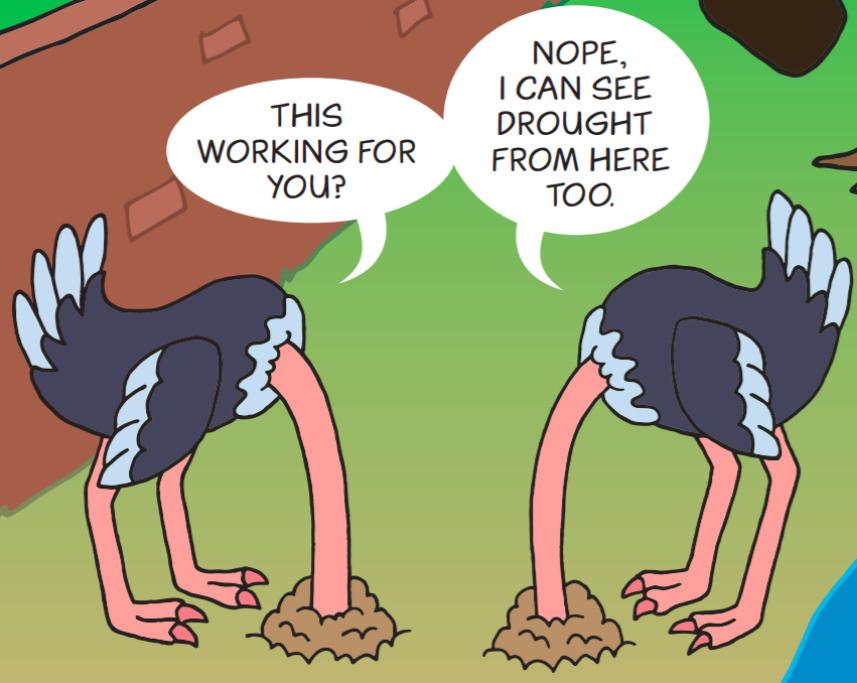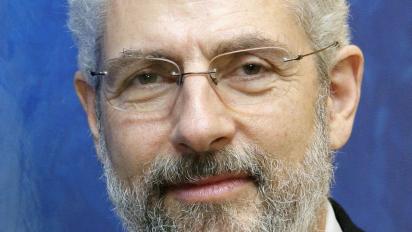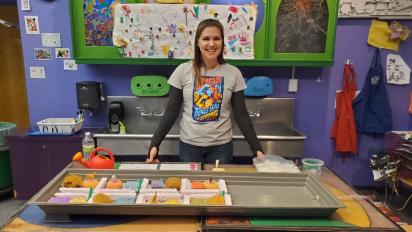When I first started teaching almost 20 years ago, climate change was not a primary concern for my students. In class, they tended to dismiss the data I presented as blown out of proportion or overly sensationalized, saying either that global warming will be a problem only in the distant future or that time will show that this is simply alarmist talk and not going to be an issue at all. Today a small minority of our youth is still reacting in a similar way, but the more disturbing trend, which teachers now must prepare for in today’s classroom, is climate anxiety.
Hope in the face of climate anxiety

Illustration by John Cook.
According to a recent article in the Guardian, children as young as six are starting to worry about the state of our planet, how we will overcome the damage, and whether there is even any hope for our species’ future.
Many students are suffering not only from anxiety but also full-blown depression due to having lived through climate crises such as flooding, wildfires, and drought. Additionally, many teens and young adults are considering not having children owing to such concerns.
But the present and probable future effects of anthropogenic climate change are already so disruptive, teachers can no longer bury their heads in the sand. At the same time, however, they cannot take the risk of leading their students into depression and despair. That’s why an increasingly essential tool in the science teacher’s toolkit is hope.
Here at NCSE, it is our goal to use the Teacher Support Program and our crew of Teacher Ambassadors to deploy effective, evidence-based tools to help students deal with the often overwhelming and depressing issues related to climate change. Our ambassadors are trained with hope in mind. Not passive hope — the kind of hope that someone else will solve the problem for them — but informed, constructive, hope based on an understanding of how to tackle these challenges and develop solutions for our planet’s future.
Students realize that although there is no silver bullet, action-driven solutions are what provide hope for the future.
Katharine Hayhoe, a renowned climatologist, director of Texas Tech University’s Climate Center, and NCSE’s 2016 Friend of the Planet awardee, recently stated that the question she is asked most often at her lectures is, “What gives you hope?” She was asked this question so often that she decided to start polling her own audiences. And the number one answer they all shared: young people. That consensus is evidence of how important reliable resources and curriculum on climate change will be moving forward.
According to the NCSE/Penn State survey five years ago, only 54% of teachers are currently teaching the scientific consensus on climate change; the occurrence and causes and consequences of climate change are still presented in too many classrooms as items up for debate rather than scientific conclusions based on abundant and robust evidence. NCSE’s five climate change lessons developed by NCSE’s Teacher Ambassadors, John Cook of George Mason University’s Center for Climate Change Communication, and former Director of Teacher Support Brad Hoge make a good foundation for any secondary class’s curriculum and could even be adapted for use in the humanities or history without much effort.
Most important for students experiencing anxiety about our planet’s future, Lesson Five focuses completely on climate solutions. Students manipulate various factors (“wedges”) in an online simulation in order to deter-mine how best to reduce greenhouse gas emissions. The main objective of the lesson is for students to recognize that reducing such emissions is possible, though it will take multiple strategies implemented across informed nations in order for lasting change to occur. Ultimately, students realize that although there is no silver bullet, action-driven solutions are what provide hope for the future.
It will be the next generation that will have to turn the tide on the climate crisis. They are the ones who will have to live with the consequences of decisions made today. So their teachers must empower them while also addressing their fears and concerns. NCSE’s Teacher Support Program will continue to provide high-quality, open-access, evidence-driven lessons and resources in order to provide future generations with the equipment needed to combat climate change misconceptions. We will continue to provide resources that not only educate, but also inspire hope.




